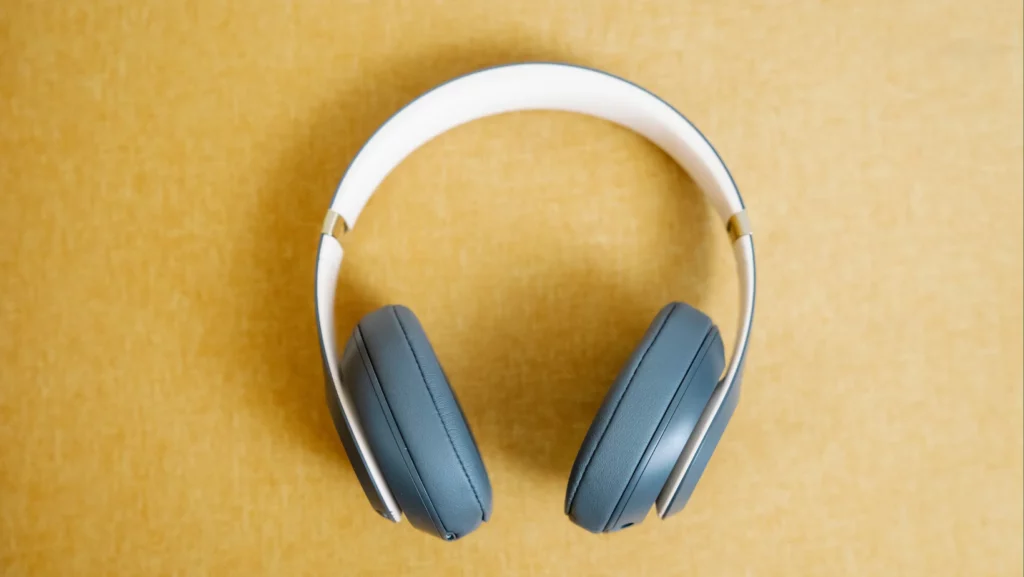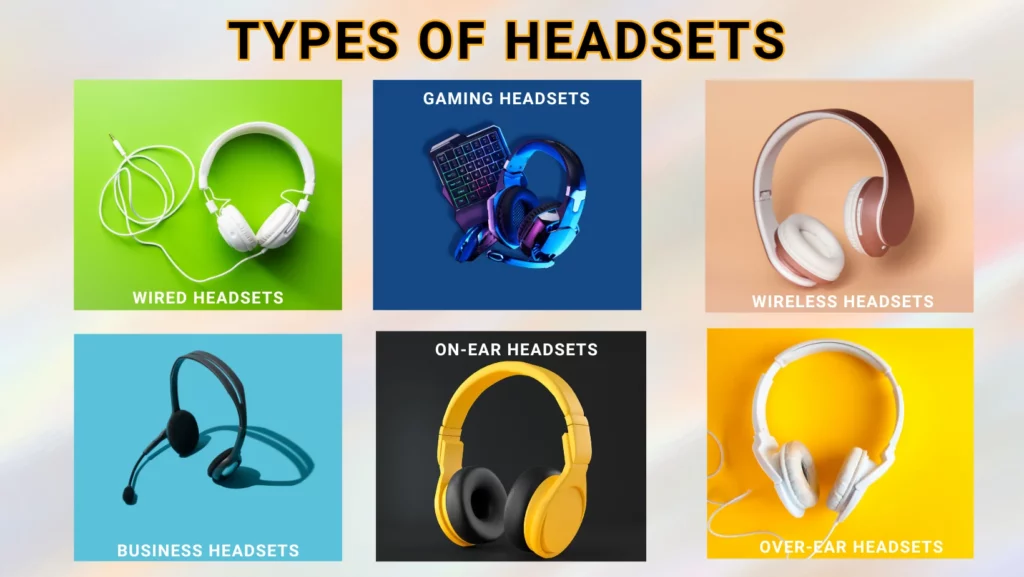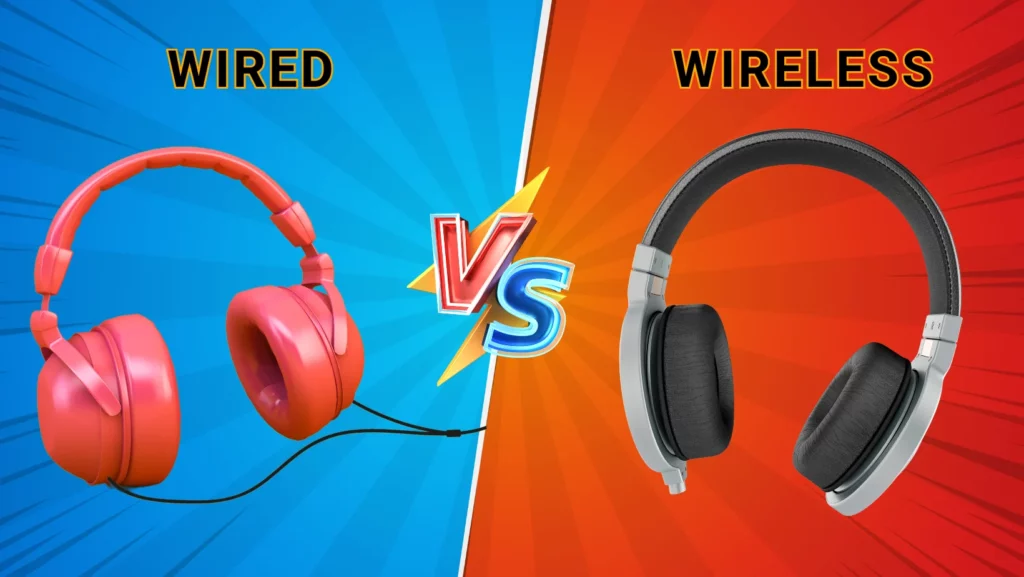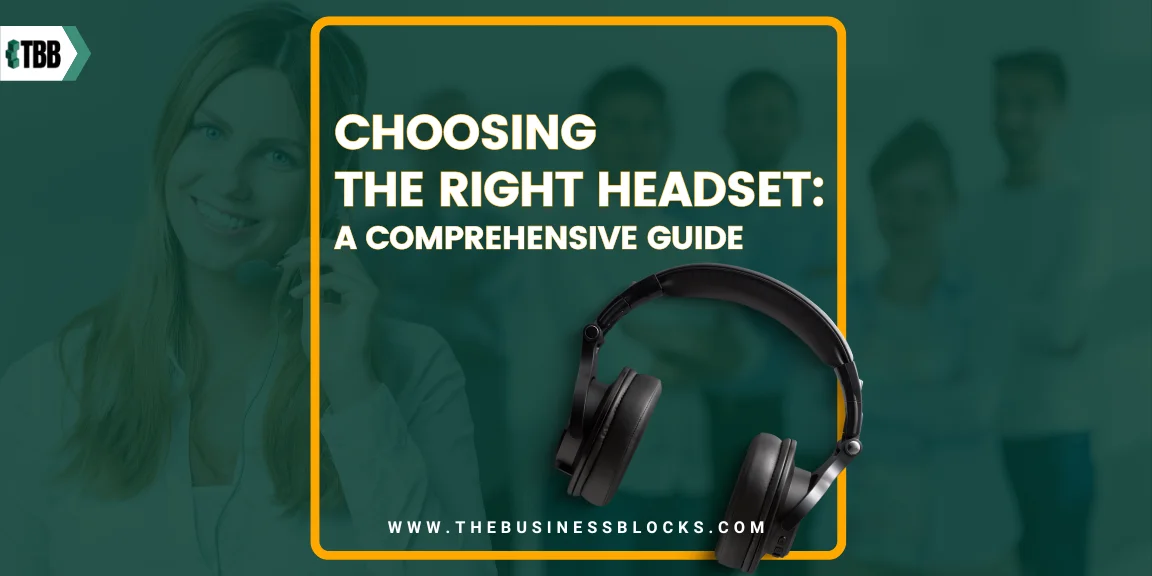Choosing the right headset is a crucial decision, whether you’re a gamer, a professional, or someone who simply enjoys music and audio content. With the vast array of options available on the market today, finding the perfect headset can be a daunting task. However, fear not! This comprehensive guide is here to help you navigate the world of headsets, providing you with the knowledge and insights you need to make an informed choice.
In this guide, we will delve into the key factors to consider when selecting a headset, ranging from audio quality and comfort to compatibility and special features. Whether you’re seeking an immersive gaming experience, clear communication in the workplace, or the ability to enjoy your favorite music with precision, we’ll cover it all.
Are you tired of subpar audio experiences?
Our comprehensive guide is here to Assist, Inform, Delight, and ultimately, Allow you to make the best choice when it comes to selecting the right headset for your needs. From crystal-clear audio quality to all-day comfort, from gaming supremacy to professional communication, we’ve got you covered.
We’ll guide you through the vast landscape of headset options, helping you make an educated decision that will leave you thrilled with your audio experience. Don’t settle for less when you can have the best. Join us on this headset-hunting expedition and embark on a journey toward auditory excellence.
Get ready to make the right choice, unleash the full potential of your audio, and take your listening adventures to the next level!
What is a Headset and Why Do You Need One?

A headset is a device that combines headphones and a microphone in one unit. It allows for hands-free communication and provides an immersive audio experience for the user. Headsets are essential for various activities such as gaming, teleconferencing, podcasting, and even just listening to music. Having a good headset can greatly enhance your overall audio experience.
You might need it if you:
- Regularly communicate with others through voice or video calls.
- Want to improve your gaming experience.
- Need a tool for recording or editing audio content.
- Enjoy listening to music and want the best sound quality possible.
This can help you to:
- Communicate more effectively and comfortably.
- Achieve better sound quality and immersion in your gaming experience.
- Produce high-quality audio content for various purposes.
- Experience music with precision and detail, just as the artist intended.
Using a headset, you can easily switch between different tasks and activities without having to swap devices. It also provides a more private and isolated audio experience, which can be beneficial in certain situations.
Did you know?
- According to the Canadian survey, In the 19-29 age group, most use headphones or earphones from 6.2 hours to 9.3 hours per week with a 95% confidence interval.
- In a Statista survey, 75% of respondents said audio quality is at the top of their requirements when looking for new headphones, and 87% of people in the US use headphones for listening to music.
Understanding Your Audio Needs
First and foremost, it’s important to understand your audio needs. Are you primarily using the headset for gaming, work, or personal entertainment? Each of these scenarios may require different features and specifications.
- If you’re a gamer, you may prioritize factors such as surround sound, noise cancellation, and microphone quality.
- For professionals, communication clarity and comfort during long hours of use may be key.
- And for personal use, you may value a combination of audio quality and versatility.
Different headsets cater to different needs, so it’s essential to determine your priorities and find a headset that aligns with them.
Types of Headsets: Exploring Your Options

If you’ve ever searched for a headset, you know there are countless options available. To make the selection process easier, let’s break down the different types of headsets and their primary uses.
1. Wired Headsets
Wired headsets use a cable to connect to your device, providing a direct audio connection. They typically have better sound quality than wireless headsets but may be less convenient due to the cord. These headsets are commonly used for gaming, office work, and personal listening.
2. Wireless Headsets
Wireless headsets use Bluetooth technology to connect to your device without a cable. They offer more freedom of movement but may have slightly lower audio quality due to the wireless connection. These headsets are popular for activities such as working out and listening to music on the go.
3. Gaming Headsets
Gaming headsets are specifically designed for gamers, with features such as surround sound, noise cancellation, and a high-quality microphone. They often come with additional gaming-related features, such as programmable buttons and RGB lighting. These headsets provide an immersive gaming experience and are a must-have for serious gamers.
4. Business Headsets
Business headsets are tailored for professional use, with a focus on clear communication and comfort during long hours of use. They may also have features such as noise cancellation and compatibility with various communication platforms. These headsets are commonly used in office settings, teleconferencing, and customer service jobs.
5. On-Ear Headsets
On-ear headsets have ear cups that rest on the ears, providing a lightweight and portable option. They may offer good sound quality but may not provide complete noise isolation like over-ear headphones.
6. Over-Ear Headsets
Over-ear headsets have larger ear cups that enclose your entire ear, providing better noise isolation and sound quality. They are generally more comfortable for extended use but may be bulkier and less portable.
Key Factors to Consider

Now that you have a better understanding of the different types of headsets available, let’s explore some key factors to consider when making your selection.
Audio Quality
The audio quality is arguably the most crucial factor to consider when choosing a headset. Look for features such as surround sound, noise cancellation, and frequency response to ensure an immersive and high-quality audio experience.
Comfort
Since you’ll likely be wearing your headset for extended periods, it’s essential to find one that is comfortable and won’t cause discomfort or fatigue. Look for adjustable headbands, soft ear cushions, and lightweight materials.
Microphone Quality
If you’ll be using your headset for communication purposes, the quality of the microphone is crucial. Look for features such as noise cancellation and adjustable boom arms to ensure clear and crisp audio transmission.
Durability
Investing in a durable headset can save you money in the long run. Look for headsets made with sturdy materials and have a good track record for longevity.
Noise Cancellation and Isolation
For a more immersive audio experience, consider headsets with noise cancellation or isolation features. These can help block out external noises and distractions, allowing you to focus on your tasks or activities.
Compatibility
Make sure the headset you choose is compatible with your device or platform. Some headsets may only work with specific devices, so it’s important to check before making a purchase
Battery Life
If you opt for a wireless headset, battery life is an essential factor to consider. Look for headsets with long battery life and quick charging capabilities to avoid interruptions during use.
Brand and Price
Consider the brand and price of the headset you are interested in. Some well-known brands may offer more reliable and high-quality products, but they may also come with a higher price tag. Consider your budget and do some research before making a decision.
User Reviews and Recommendations
Lastly, don’t forget to read user reviews and consider recommendations from friends or colleagues. Real-world experiences can provide valuable insights into a headset’s performance and help you make an informed decision.
These important factors can help guide you in choosing the right headset for your needs. With this knowledge, you can confidently navigate the vast world of headsets and find one that suits you best.
Wired vs. Wireless: Which Is Right for You?

You might be undecided between wired and wireless headsets. Both have their pros and cons, so it ultimately comes down to personal preference and intended use.
Wired Headsets
Pros:
- Better sound quality
- No need to charge the battery
- More affordable
Cons:
- Limited mobility due to cord
- May get tangled
- Requires a compatible audio jack or adapter
Wireless Headsets
Pros:
- Freedom of movement
- No cords to get tangled
- Can connect to various devices via Bluetooth
Cons:
- Slightly lower sound quality
- Requires charging or battery replacements
- More expensive than wired headsets
The decision between wired and wireless comes down to your priorities. If the audio quality is most important to you, then a wired headset may be the way to go. If convenience and mobility are more critical, then a wireless headset may suit your needs better. Whichever type of headset you choose, make sure it meets your specific requirements and enhances your overall audio experience.
Where to Buy: Finding Your Ideal Headset
Now that you have a good understanding of the different types of headsets and what to consider when making your selection, it’s time to find where to buy your ideal headset.
Here are some options to consider:
Physical Retail Stores
Many brick-and-mortar stores offer a wide variety of headsets for you to try on and compare in person. They may also have knowledgeable staff who can assist in your decision-making process.
Online Retailers
Online retailers such as Amazon, Best Buy, and Newegg offer a vast selection of headsets at various price points. You can easily compare different models and read user reviews before making a purchase.
Manufacturer Websites
You can also buy directly from the manufacturer’s website. This option may offer exclusive deals or discounts and the assurance of buying directly from the source.
Secondhand Markets
If you’re on a budget, consider purchasing a secondhand headset from sites like eBay or Facebook Marketplace. Just be sure to thoroughly inspect the product before making a purchase.
Maintenance Tips: Keeping Your Headset in Top Shape
To ensure your headset lasts for a long time, here are some maintenance tips to keep in mind:
- Keep your headset clean by wiping it down regularly with a soft cloth.
- Store it in a safe and dry place when not in use.
- Avoid bending or twisting the cord as this can cause damage.
- Disconnect the headset from devices when not in use to prolong battery life.
- If using a wired headset, unplug it gently to avoid damaging the audio jack.
Taking care of your headset can significantly extend its lifespan and save you from having to replace it frequently. So, remember to give your headset some TLC for long-lasting performance.
Troubleshooting Common Headset Issues

Like with any electronic device, headsets may encounter some issues during use. Here are some common problems and troubleshooting tips you can try:
- No sound: Check that the volume on your device is turned up and that the audio source is correctly selected.
- Sound only coming from one side: Ensure that the headset cables are properly connected and not damaged.
- Microphone not working: Make sure the microphone is correctly plugged in, and the mute button is not activated.
- Poor audio quality: Adjust the headset for a better fit, check your internet connection, or try updating audio drivers on your device.
If these troubleshooting tips do not resolve the issue, consult the manufacturer’s instructions or seek technical support. Remember to always handle your headset with care to avoid any potential problems.
Frequently Asked Questions About Choosing the Right Headset: A Comprehensive Guide
Q: Can I use my gaming headset for work-related tasks?
A: Yes, you can use a gaming headset for work tasks. However, consider if the microphone and sound quality meet your needs for communication or virtual meetings.
Q: How do I know which type of headset is compatible with my device?
A: Check the product’s specifications to see if it is compatible with your device. You can also consult with technical support or read user reviews for compatibility experiences.
Q: Can I use a wireless headset on multiple devices?
A: Yes, most wireless headsets can be connected to multiple devices via Bluetooth. Check the product’s specifications for the number of devices it can connect to at once.
Q: How do I clean my headset?
A: Use a soft, damp cloth to wipe down the headset and avoid using harsh cleaning products. For any hard-to-reach areas, use a cotton swab lightly moistened with rubbing alcohol.
Q: What are the advantages of noise-cancelling headsets?
A: Noise-cancelling headsets use advanced technology to reduce ambient noise, providing a more immersive audio experience. They can also be beneficial for those who work in noisy environments or frequently travel.
Final Thoughts
Selecting the right headset is a pivotal decision that can significantly enhance your audio experience, whether for work, leisure, gaming, or communication. By understanding your specific needs, exploring the various types available, and considering the factors given in this guide, you can make an informed choice.
Additionally, the importance of balancing your budget with brand reputation and user recommendations cannot be understated. Remember that your choice of headset can greatly impact the way you interact with audio in your daily life. So, take your time, explore your options, and enjoy the immersive and high-quality audio experience that the right headset can provide.

